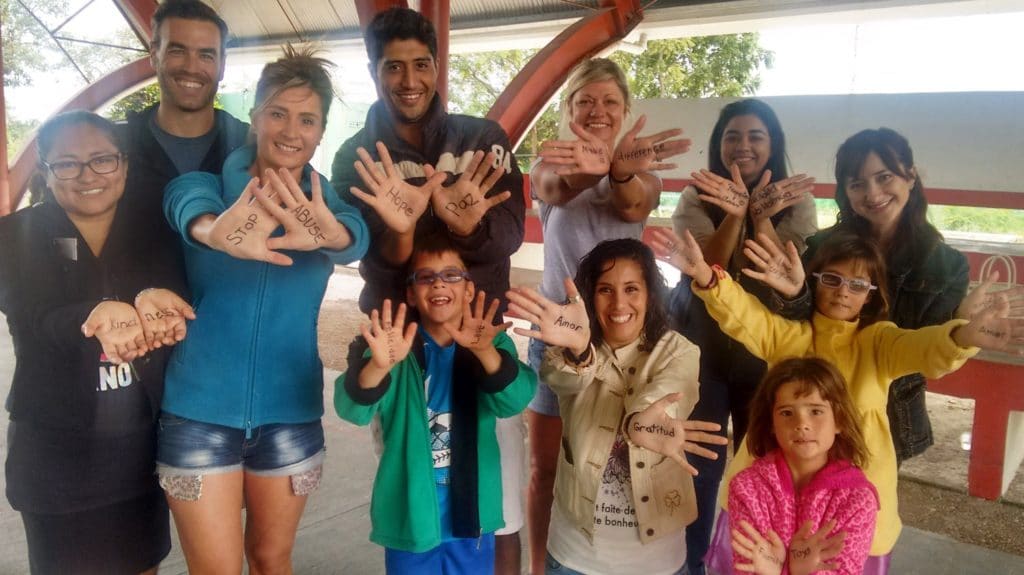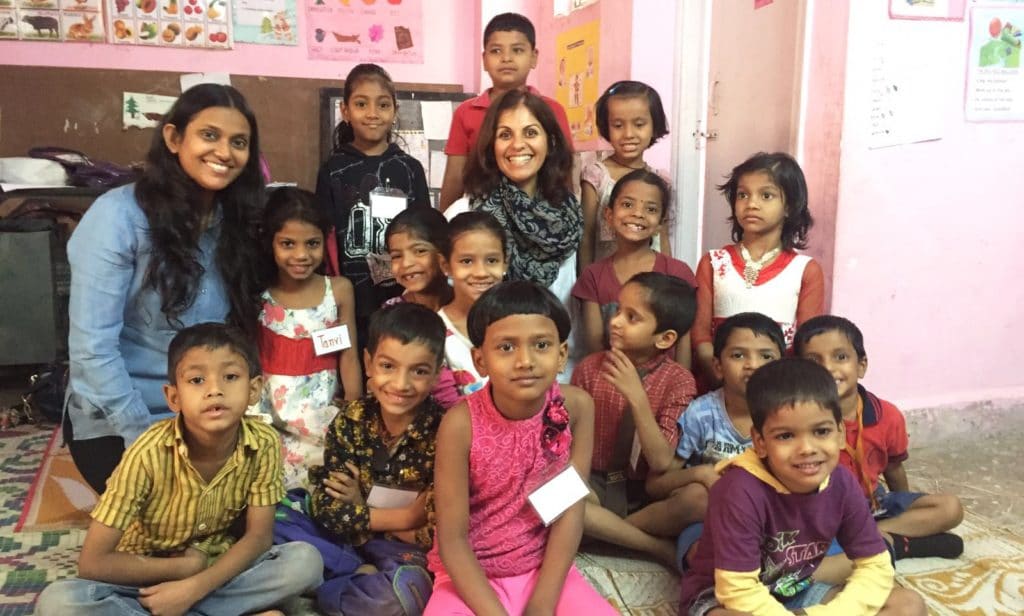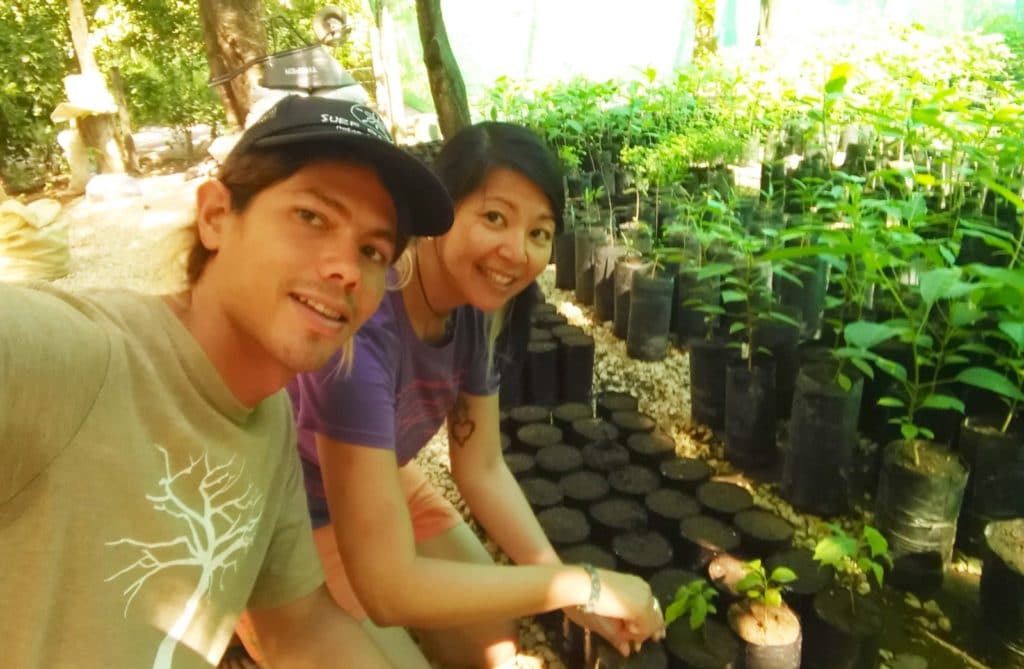01 Apr Crowdsourcing Global Change: Why Voluntourism Matters

Volunteers and students at a soup kitchen and enrichment program in Cancun, Mexico.
When Ophelia was 18 years old, she traveled to Haiti to volunteer at an eye clinic. As a British teenager straight out of boarding school without any practical skills, her narrative fits perfectly into the withering criticism that is often directed at “voluntourists.” In a recent New York Times article, The Voluntarist’s Dilemma, Jacob Kushner described voluntourists as well-intentioned people doing more harm than good by displacing local laborers, traumatizing vulnerable children, and privileging short term, superficial results instead of long-term substantial ones. From these anecdotes, Kushner jumps to a sweeping conclusion: unless you’re a doctor or development expert, go back to your hotel. Go be a tourist, and leave changing the world to the pros.
Some of Kushner’s observations are accurate, but his conclusion is overreaching. Most people who have spent extended periods of time in a developing country have stumbled across self-congratulatory and ineffective acts of service. I’ve seen volunteers handing out hundreds of pairs of imported flip-flops to kids in Port-au-Prince who already had shoes, much to the dismay of local sandal vendors, effectively killing their business.
Certainly voluntourists should be held to a higher standard. Volunteering must be well designed in order to mitigate any unintended negative consequences, and we should push for industry innovation and reforms: it must not displace local laborers or jeopardize children. It must be designed in conjunction with communities on-the-ground to ensure long-term planning. Indeed, scholars and organizers of student volunteering are already addressing such reforms have named their new standards “Fair Trade Learning.”
Selecting a few critical anecdotes (and avoiding any positive ones) is misleading and maligns all volunteers. Some voluntourists are counterproductive, but many participate in well-designed service activities created by ethical nonprofit organizations who are working to meet the needs of communities all over the world.
As an example: a family from Colorado with two young children recently volunteered at a soup kitchen in Mexico. Their presence brought smiles to local staff and at-risk kids who were delighted to have guests share stories from other parts of the world. The family’s modest donation helped the kitchen purchase food for weeks, buoying the local nonprofit leader, Maria-Elena, who has devoted her life to nourishing the bodies and hearts in her community. And the family left with renewed inspiration to do more.

Volunteers with a group of students at an after-school program in Mumbai, India.
There are countless equally heartwarming stories: a pair of friends in India volunteering at an after-school program and helping the local teacher. Or from a solo traveler in Kenya volunteering at a microfinance organization boosting loan recipients. Or honeymooners in Costa Rica at a reforestation project tending saplings. Their first-hand experiences build empathy, raise awareness, and can lead to advocacy.
As the co-founder of a nonprofit that connects travelers with one-day volunteer opportunities — Give A Day Global — I regularly bear witness to stories of people spending a day during their vacation devoted to service. When done right the rewards are a win-win-win: the volunteer is inspired, the nonprofit is enriched, and a connection is made that can last long into the future.

Volunteer (right) with staff member (left) at a reforestation project in Playa Guiones, Costa Rica.
Does volunteering for a day “heal the world’s ills?” No, but volunteerism — both at home and abroad — is not about sudden, massive change. It is about small, incremental contributions that become meaningful in aggregate. Like thousands of small Kickstarter pledges adding up to a surprising sum. Or hundreds of billions of recycled beverage containers reducing the size of landfills, can by can. In isolation individual contributions can seem insignificant, but together they can pack a punch.
Kushner cites a 2008 study that estimated 1.6 million people volunteer on vacation, spending around $2 billion annually. These numbers are low if you consider that over a billion people travel internationally every year, and generate over 1.25 trillion in revenue. If we could consistently get tens of millions of travelers to spend some of their time and some of their travel budget on behalf of global causes, then we could create a powerful movement.
The suggestion that tourists stick with touring is dismissive and encourages apathy. With the number of critical problems facing our planet, we can’t afford mass indifference to global issues. I recently heard a panel of humanitarians speak at Stanford University regarding the UN’s 2030 Sustainable Development Goals to end global poverty, gender inequality, and climate change (to name just a few). These experts were entreating the public: “We need everyone to get involved in order to achieve these ambitious goals! We need all hands on deck!”
The experts know that social movements succeed by making it possible for everyone to get involved at varying levels of commitment. They also know that innovative ideas are not the exclusive domain of experts. We need the imagination, energy, and creativity of as many people as we can get. Of course voluntourists will not solve intractable problems by themselves, but they are critical members of the chorus. In order to imagine a healthy planet where all inhabitants have the opportunity to thrive, we will need a big, big choir.
Some people are so moved by their volunteer experience that they may become professionals and devote their entire career to social impact. They may even create organizations that inspire many more people to get involved. There are many stories of leaders that emerged this way: John Wood, Scott Harrison, Leila Janah, Jessica Posner Odede, Kevin Starr, and Jessica Jackley, to name just a few.
And as for Ophelia, the teenager from the UK? That was Ophelia Dahl, who went on to co-found the groundbreaking global health organization Partners in Health, along with Paul Farmer, “to bring the benefits of modern medical science to those most in need of them.” Their organization has achieved numerous stunning and far-reaching results, but her journey began with one small step, taken as a volunteer.

No Comments